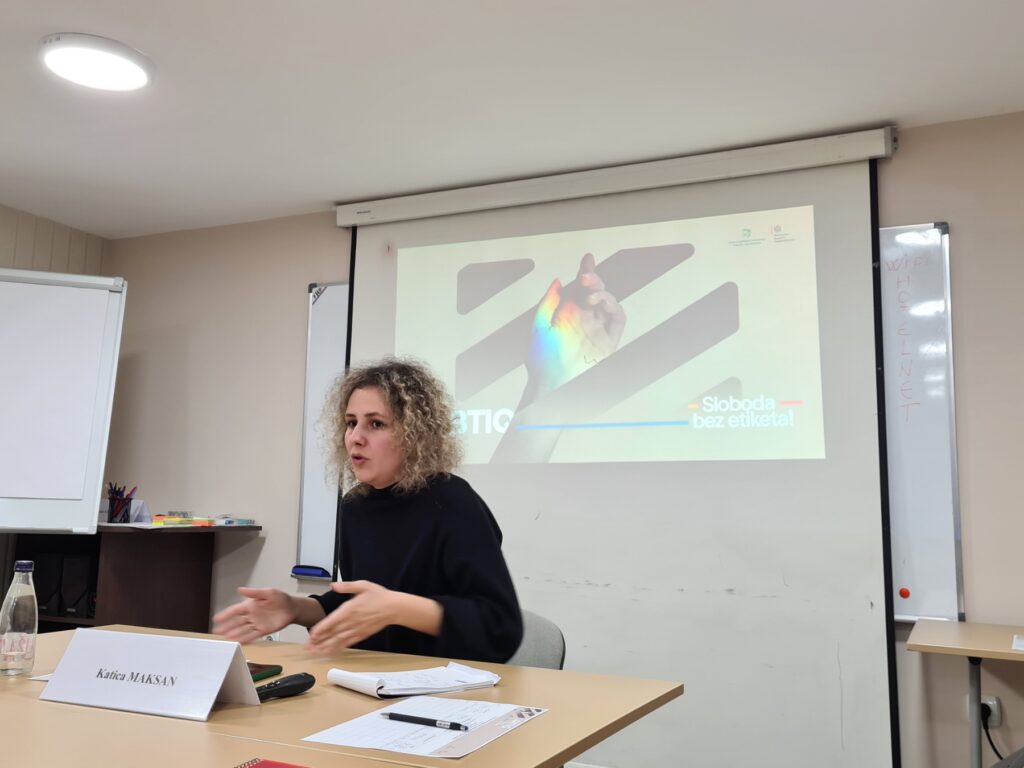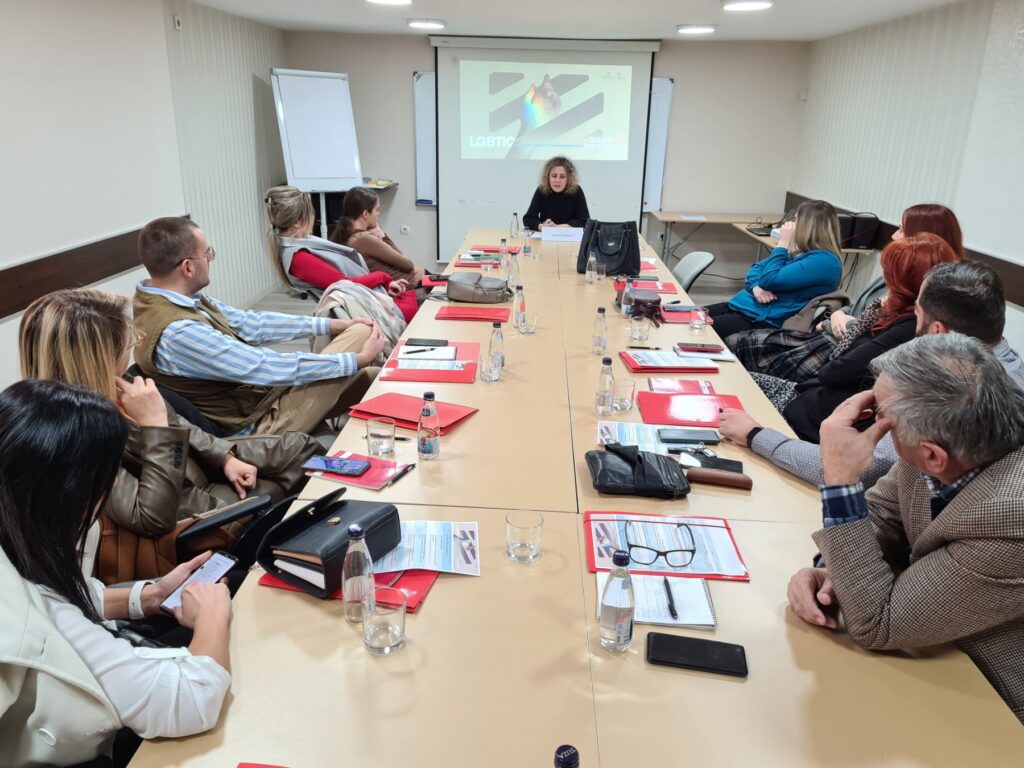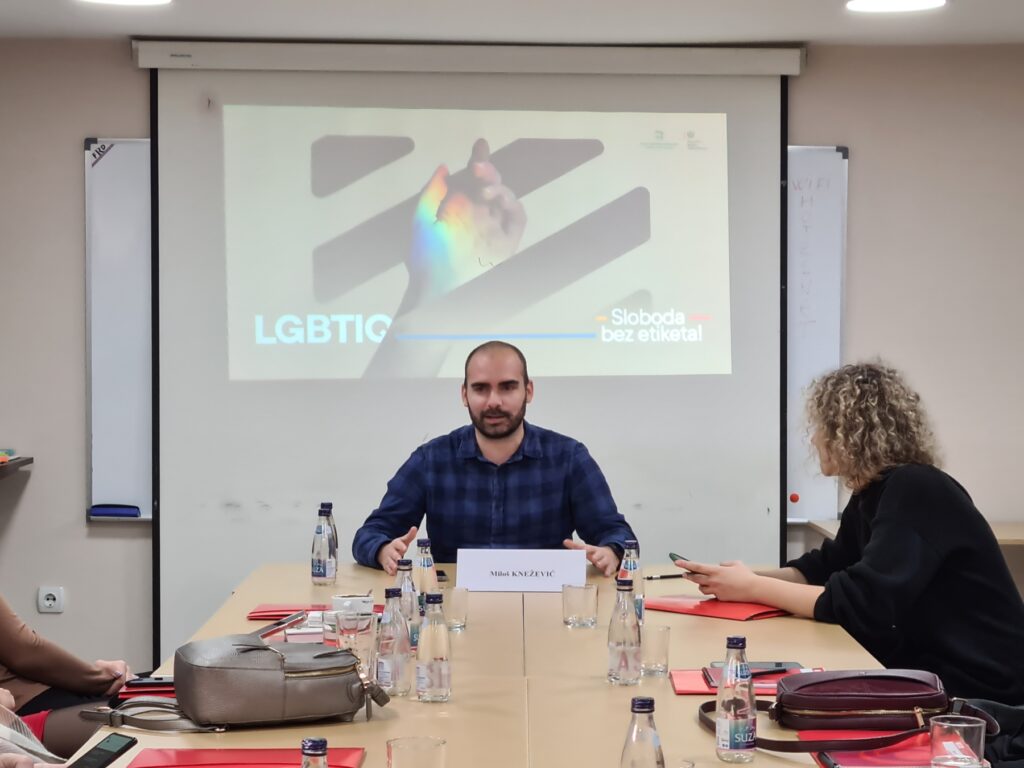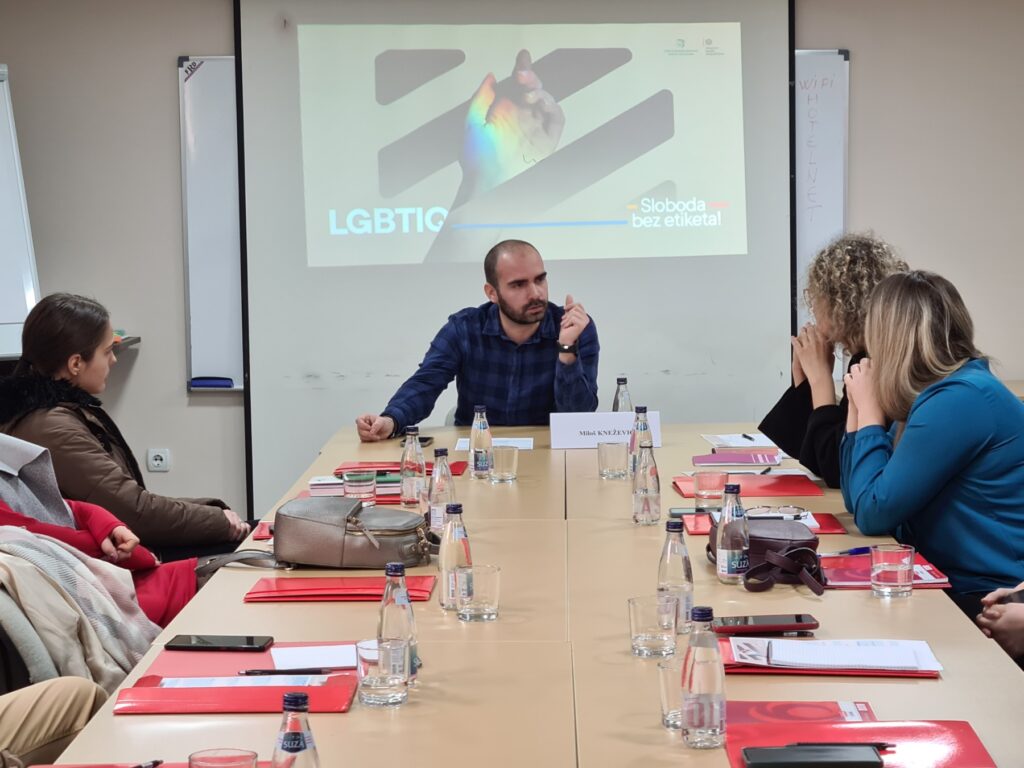It is necessary to introduce more teaching topics that address LGBTIQ rights in secondary schools, and teachers should be given more space to be supportive of LGBTIQ students, it was said during the training for secondary school teachers on teaching methods concerning LGBTIQ topics, organised by the Centre for Civic Education (CCE), on 23 December 2022, in Podgorica, as part of the project “LGBTIQ – Freedom without labels!”, which the CCE is implementing with the support of the Ministry of Human and Minority Rights of Montenegro.
The training covered the topics of human rights and discrimination, teaching about LGBTIQ topics, working with LGBTIQ students, prevention of discrimination and violence against LGBTIQ people, the history of the LGBTIQ movement in Montenegro, LGBTIQ literature, etc. At the same time, the material that the trainers processed in detail with the participants was presented, and it can be used by professors in secondary schools to enrich teaching topics about human rights.
Educational institutions are recognized, as important actors in the affirmation of the rights of LGBTIQ people, both by citizens and representatives of the LGBTIQ community, as indicated by the CCE researches, and at the same time, two out of three high school students state that they did not receive enough adequate knowledge based on which they can form an opinion about LGBTIQ people.
“Pedagogical and psychological services in schools are mainly used as a way of punishing students, to whom students are sent when they make a mistake and misbehave, and in working with the LGBTIQ community, a sense of trust is very important, especially when there are different types of violence against LGBTIQ students,” emphasized Miloš Knežević, Executive Director of the Montenegrin LGBTIQ association Queer Montenegro, who was also one of the lecturers.
“It is important to gain the trust of students as school employees are the ones who can prevent certain problems when it comes to discrimination and violence in schools. It is necessary to create a support system in schools, which students must be familiar with to know who, how and when they can turn to if they have a problem,” said Knežević.
Katica Maksan, a professor of the Montenegrin language and South Slavic literature and lecturer at the training, believes that prejudice concerning LGBTIQ people start from the earliest childhood and that both parents and teachers carry them. “Everything starts from talking about what boys and girls should wear and what toys they should play with, to opinions about whom and how they should hang out with and form romantic relationships. Teachers, regardless of personal views, must provide support to LGBTIQ children who are often victims of peer violence. Today, when there is more and more will and ways to introduce innovative learning methods into education, teachers can use what the students are most interested in to bring the teaching content closer to them,” she said.

“Times are changing and the number of teachers who want to learn more about how to support all students has increased, but it is still the task of schools and the Ministry of Education to enable the constant education of teachers to continue, for the benefit of the whole society,” Maksan concluded.
“It is necessary to invest a lot more energy from all sides in breaking prejudice and stereotypes, as well as understanding and respecting the rights of LGBTIQ people. In that part, it is evident that a great responsibility lies precisely with educators, pedagogues, all persons who are a part of the educational system, who spend a lot of time with young people and who represent a kind of authority,” said Danijel Samardžić, biology and healthy lifestyles teacher from Secondary Mixed School “Danilo Kiš” from Budva.
“It is important that reforms that will go in the direction of concrete action are conducted at the institutional level, for example, that the Healthy Lifestyles subject, which deals with the topic of gender, sex and LGBTIQ rights, becomes mandatory, instead of optional; that the curriculum of subjects such as biology, psychology also have more space,” he underlined.
Milena Jelić Šuntić, Sociology teacher at Gymnasium “Petar I Petrović Njegoš”, in Danilovgrad, also points to other contextual problems. “In the collapsed value system and ignorance of human rights, I have no illusions and no hope that the system will solve these problems. Children and young people, as well as all LGBTIQ people, need support, their parents need support, and the system and the state need reanimation. While we wait for the system to be reanimated, we teachers, as someone who is in constant contact with young people, need, can and must provide support to LGBTIQ people. We need to openly tell them that we are here for them,” she said.
Referring to hate speech and violence against LGBTIQ people, she underlined the importance of accepting those who are different from the majority and avoiding anything that can lead to violence. “That way we will also be better people, and those we consider to be different will at least feel a little safer,” she stated.
The teachers are focused on following the curriculum, oriented towards evaluating students, and burdened with paperwork, hence, it is necessary to change the approach from the top to enable the introduction of more teaching topics that also address LGBTIQ rights and to give teachers more space to be better support for LGBTIQ students, it was concluded at training for secondary school teachers on methods of teaching LGBTIQ topics.
Željka Ćetković, Active Citizenship programme coordinator



